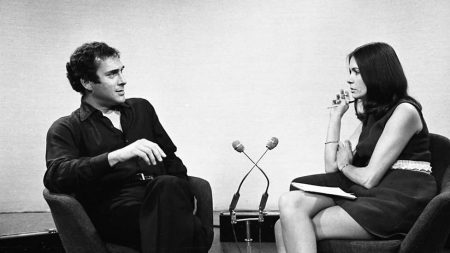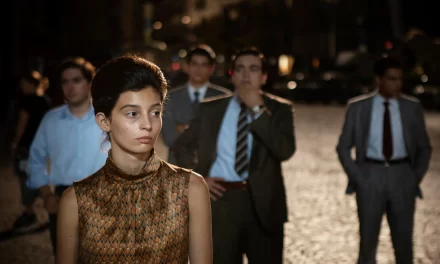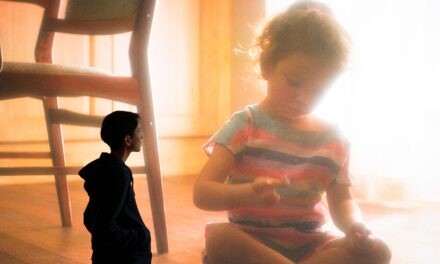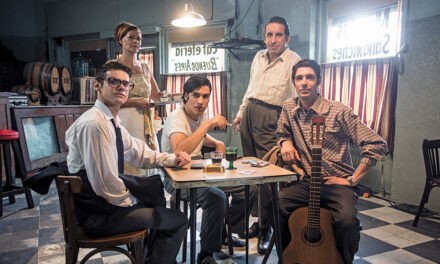Pinter on Film, Television and Radio
A two-day international conference at the
University of Reading and the British Library, 19-20 September 2018
Call for papers
Harold Pinter (1930-2008) was an actor, director and writer whose output over five decades spanned theatre, film, television, radio, poetry, prose and politics. His writing for radio and television pushed aesthetic boundaries and his films contributed to the landscape and practices of post-war British cinema, while his stage plays have been part of the canon of world theatre since the 1960s. His work has enjoyed a place in the public imagination from the early 1960s, due to the combined impact of the successful stage plays The Caretaker and The Homecoming, augmented by the popular appeal of radio plays and television dramas such as The Lover, The Collection and A Night Out and by the esteem and box-office success of early screenplays such as The Servant and The Pumpkin Eater.
Pinter’s work on film, television and radio has received less concentrated attention than his theatre work, which has been widely discussed, debated and celebrated internationally. The ‘Pinter on Film, Television and Radio’ conference—the second of three to be held by the AHRC-funded ‘Harold Pinter: Histories and Legacies’ research project—therefore invites established scholars and early career researchers from a range of academic disciplines, together with practitioners and archivists, to come together to explore all aspects of Pinter’s works for, and on, film, television and radio. At least one edited collection or journal special issue will be published from the papers of this two-day conference.
Possible topics
The two central questions pursued by the research project concern the aesthetics that have been connected with Pinter’s work and the impact that his work has had on the broader palette of British performance histories since the 1950s. With regard to this conference’s focus on film, television and radio, possible topics relating to this wider remit may include (but are not limited to):
- Production – Pinter’s understanding, as both writer and performer, of aesthetic choices in production such as the spatial possibilities of studio and location
- Collaborative practice – Pinter’s work with, for example, particular directors or producers, and the significance of his networks in different media contexts
- Intermediality – his development of dramatic narratives across media, and transfers of dramatic conventions from one medium to another
- Adaptation – the processes involved in realising work through the performance aesthetics and signifying systems of different media, such as Pinter’s screenplays adapted from novels
- Theatricality – the interconnections between Pinter’s work on film, television, and radio, on the one hand, and theatre on the other
- British film cultures – Pinter’s role in the changing forms of British national cinema and its international position
- Screenwriting – Pinter’s engagement with the specific forms and conventions of writing for the visual media
- Acting and performance – particular performance techniques used by actors of Pinter drama, and what the recording and mediation of performances on screen and on radio may tell us
- Audiences – audience engagement and response to Pinter’s work across different media
- Gender – Pinter’s film, TV and radio in relation to social constructions of gender
- Politics – how radio and television amplified Pinter’s contribution to political discourse via his plays and other writings
- Archives – the preservation, archiving and accessibility of Pinter’s work in media forms; the value of paper archives for historiography of Pinter’s work (e.g. BL’s Harold Pinter Archive; BBC Written Archives Centre)
- Audio – audio traces such as Pinter’s appearances in oral histories held by the BL’s Theatre Archive Project, and the BL’s audio record of Pinter’s theatre plays
Deadline for abstracts
Please send abstracts of no more than 200 words and a brief biography by midnight on Friday 16 February 2018 to the three conference organisers Professor Jonathan Bignell, Dr Billy Smart and Dr Amanda Wrigley via w.r.smart@reading.ac.uk.
Papers must be delivered in a maximum of 20 minutes including any extracts or illustrative material. Proposals for three-speaker panels are also welcome: please collate the information above into one document and outline briefly the rationale of the panel.
Venues:
University of Reading and the British Library
This two-day conference will take place on two sites: day one in Reading, ‘Pinter on Screen’, will focus primarily on Pinter on film and television, and will be held in Minghella Studios, University of Reading on Wednesday 19 September 2018; the second day, ‘Pinter on Air’, will focus primarily on Pinter on radio and in audio archives, and will be held in the British Library in London on Thursday 20 September 2018. Day two will also be open to the public and it will showcase the Library’s prolific audio and manuscript holdings on Pinter as part of the BL’s Cultural Events programme. The two days will be separately bookable. Given the intermedial nature of Pinter’s work, however, we anticipate a great amount of correspondence between the topics and discussions of both days, and we are keen for academic participants to join for the whole conference if possible.
Accommodation will be offered on the University of Reading’s Whiteknights campus, the location of the conference venue on day one. Delegates will travel to the British Library for day two independently by public transport.
Context
This conference is part of series of academic and public events organised by the inter-institutional research project ‘Harold Pinter: Histories and Legacies’, a collaboration between the universities of Birmingham, Leeds and Reading. The project is funded by the Arts and Humanities Research Council and runs from 2017 to 2019. The project will host three conferences: the inaugural conference, ‘Staging Pinter: Networks, Collaborators, Legacies’ will take place at the University of Birmingham in April 2018: for further information see cstonline.netpinterlegacies.com/events/birmingham-conference-staging-pinter. The ‘Pinter on Film, Television and Radio’ conference at the University of Reading and the British Library, September 2018, is the second event; and the third conference will be held at the University of Leeds in 2019 to mark the conclusion of the project.






